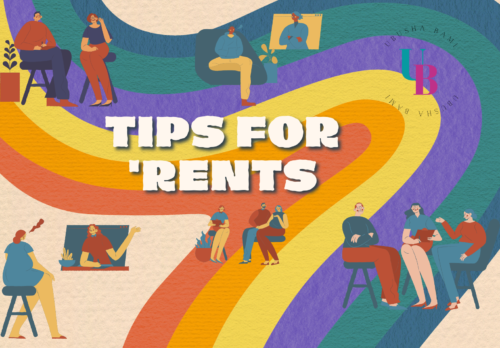
1) Accept that your ‘baby’ may want to explore and experiment with substances both legal and illegal – This might be a harsh and hard truth to come to terms with but one that is necessary. You may be tempted to hold on to the version of your child as this fragile baby that relies on you for all their knowledge of, and about, the world. But this isn’t so. As your child grows more aware of the various things around them, curiosities and proclivities will surface. The more accepting you are of this, the better off you are at preparing your child to make wise and safe decisions as they explore the world.
2) Peer-pressure is still a thing, and your child is not above its influence nor exerting it on others – it is often easier to warn your child against peer-pressure and not imagine that they could be an instigator. Peer-pressure is not altogether bad. Peers can pressure each other towards positive behaviors such as excelling academically, acting responsibly in tough situations, and being optimistic about difficult situations. It is equally true that peers can also pressure each other towards negative or undesirable behaviors – we have all read and seen ample examples of this hence it is where our minds go when we talk about peer-pressure. It is prudent to remember that at this age, peer approval and acceptance are very important. You cannot convince your teen to be socially isolated, in fact, it will probably not serve them well to do so. Rather encourage them to think independently and critically about their choice in friends, associates and social groups. Remind them that their social network can be an asset or liability, and that they are better off choosing the asset option and better yet, being one themselves.
3) Keep your eyes and ears wide open – Many children begin to experiment with legal and illegal drugs, tobacco and alcohol much sooner than parents think. At family dinners, neighborhood hang outs and through friends, substances are within reach of young teens. The medicines you keep in your home and food you consume, may well be substances themselves. Your own relationship with substances does not go unnoticed by your teen. While not everyone will develop a detrimental relationship with substances, it is still worthwhile to be aware that that is a possibility especially if there is a family history of this. You want to be as aware as possible of the latest drugs going around, as well as your teens’ relationship to substances. It is also important to be watchful of the ways and extent to which your teen consumes legal substances such as medicines and caffeine. This requires you to keep your eyes and ears on the ground.
4) You don’t have to do it alone – Many parents of teens battling addiction feel isolated and stigmatized. We live in a society where there is a lot of parent-blame. Compassion on families especially parents living with children in active addiction can be hard to come by. But best believe you are not alone. Organisation’s like Alcoholics Anonymous and Narcotics Anonymous have adjacent support groups for those who are part of the substance-users’ support system. Speak to a family counselor or social worker about this.
5) Addiction is a lifelong battle, not a phase your teen will outgrow – If your teen develops a substance addiction, they will contend with it their whole lives. This of course means everyone in their network will deal with it their whole lives. It is better to fight the addiction together than to fight each other. Easier said than done, but remember that more often than not, someone wanting to overcome active addiction is truly not proud or happy to be struggling with it in the first place. They are also not unaware of the hurt and difficulty it brings. Perhaps you also have a history with active addiction and therefore can relate. Whatever the circumstance, turning a blind eye will not make it go away nor will blame and shame. Addiction is complex and requires a wholistic approach. It is better dealt with when all hands are on deck, as honesty, firmness and boundaries are balanced with patience, compassion and understanding.
What other tips do you have regarding substance use that you are noticing or teaching your teen? Share some of your tips by leaving us a comment.